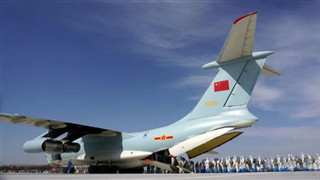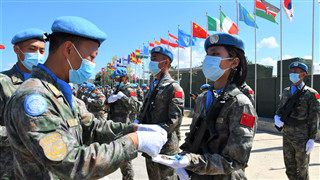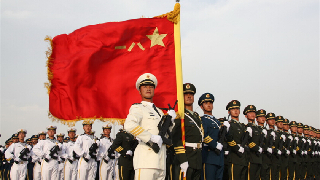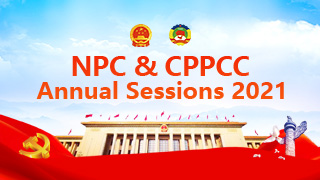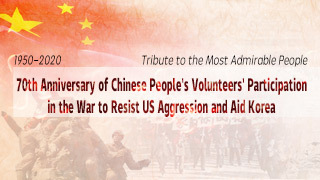Editor's Note: To celebrate the 100th founding anniversary of the Communist Party of China, we are launching the "100 CPC Stories in 100 Days" series, featuring foreigners who witnessed and participated in the CPC's history and helped the world better understand the CPC. The following is the fifth story of the series.

After Edgar Snow's stories on Red China caused a great sensation, his wife, Helen Foster, realized that Snow's journey had become part of the history of China. With all the interviews and other accounts Snow brought back about Mao Zedong, Zhou Enlai, Peng Dehuai and others, she decided that she would continue with Snow's unfinished trip to Yan'an to get more first-hand information about the CPC leaders and the Red Army.
In May 1937, Helen finally made her way to Yan'an, where she had many in-depth conversations with Mao Zedong about the Chinese revolution. One day, Mao Zedong handed her a copy of the CPC's Ten-Point Program for Resisting Japanese Aggression and Saving the Nation. With his eyes lit up, he talked about how, working with the Nanking government, these ten points could be achieved and the Japanese imperialism would be defeated; and how it may be the end of China if otherwise. In Helen's eyes, Mao Zedong was like a god on the Olympus in the small yet bustling town of Yan'an. "Big" was the word she used to describe this leader of the revolutionary base. He would provide the contour of a policy or theory and leave the details to others to execute. As an individual, he was least insignificant, selfish, mediocre or revengeful. He was a product of the Chinese revolution. At the same time, Helen also saw the other side of Mao Zedong. He was an ordinary but larger than life person, the epitome of China, and the representation of the peasants who accounted for 80 percent of the population in his country.
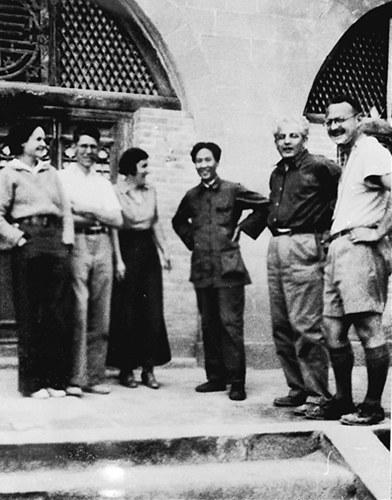
Through lengthy interviews and close contacts with Mao Zedong and Zhu De, Helen found that camaraderie among leaders of the CPC was an important factor for the succession of victories secured by the Fourth Front Red Army, with Zhu De as the army commander and Mao Zedong as the Party representative. Zhu De and Mao Zedong, who were vilified by the Kuomingtang, were the ones who could truly save the Chinese nation at the critical moment. She wrote in her manuscript that without Zhu De and Mao Zedong, the history of the Communist movement in China would be unimaginable. Mao Zedong had a calm political mind while Zhu De had a fiery heart as a fighter, which had kept him going throughout his life. In Helen's view, Zhu De and Mao Zedong could be seen as one. Mao Zedong was the brain, the theorist while Zhu De was the heart and the army. In her notes, Helen wrote wittily that they were both made of high-quality materials.
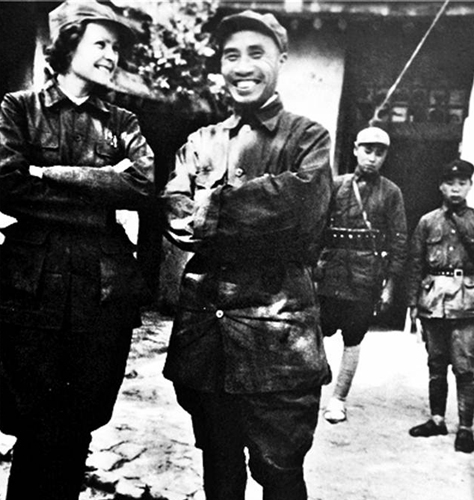
In addition to Zhu De and Mao Zedong, Helen also seized the opportunity of the the CPC National Congress convened in Yan'an to have long talks with many CPC leaders, which left her with dozens of thick notebooks. Later, based on her experience in Yan'an, Helen wrote Inside Red China and Red Dust: Autobiographies of Chinese Communists, unveiling to the world the town of Yan'an and the Chinese Communists.
